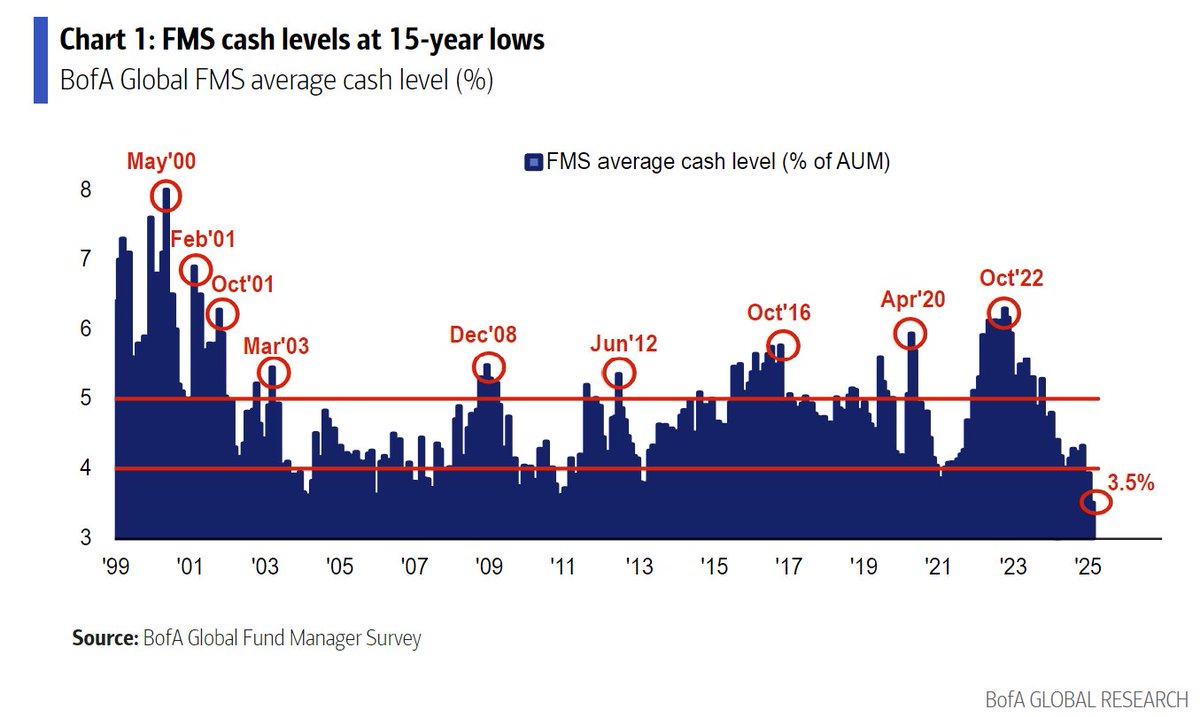Interview worth reading for all.
“Within the next 5 years you could see a situation in which foreigners who have been lending money to the US won’t want to, and the dollar would not be as readily accepted for making purchases in the world as it is now.”
marketwatch.com/story/billiona…
“Within the next 5 years you could see a situation in which foreigners who have been lending money to the US won’t want to, and the dollar would not be as readily accepted for making purchases in the world as it is now.”
marketwatch.com/story/billiona…
For example, the United States lost a lot of the education advantage relative to other countries, our share of world GDP is reduced, the wealth gap has increased which has contributed to our political and social polarization.
The U.S. is in the late stages of a debt cycle and money cycle in which we’re producing a lot of debt and printing a lot of money. That’s a problem. As a reserve currency status, the U.S. dollar is still dominant though its being threatened.
The U.S. has a lot of debt, which is adding to the hurdles that typically drag an economy down, so in order to succeed, you have to do a pretty big debt restructuring. History shows what kind of a challenge that is.
The United States is a 75-year-old empire and it is exhibiting signs of decline. If you want to extend your life, there are clear things you can do, but it means doing things that you don’t want to do.
Wealth gaps give unfair advantages to the children of rich people because they get a better education, which undermines the equal opportunity notion.
Capitalists are good at increasing and producing productivity to increase the size of the economic pie, but they’re not good at dividing the economic opportunity pie.
Socialists are generally not good at increasing productivity and the size of the economic opportunity pie, but they are better at dividing the pie.
My favourite quote from this interview:
We now have too much emphasis on distributing wealth and getting it from producing debt and printing money, and not enough from increasing productivity. Wealth cannot be created by creating debt and money.
We now have too much emphasis on distributing wealth and getting it from producing debt and printing money, and not enough from increasing productivity. Wealth cannot be created by creating debt and money.
Within the next five years you could see a situation in which foreigners who have been lending money to the United States won’t want to, and the dollar would not be as readily accepted for making purchases in the world as it is now.
The US doesn’t have a good income statement and balance sheet in dealing with the rest of the world. It is running a deficit to the rest of the world that is financed by borrowing money so that we are producing liabilities.
People can’t take a downturn and have less buying power. So, necessarily the poor will have to be getting money from the rich and the rich are going to want to prevent that, and then if it gets bad enough, that it messes up productivity.
Democracy depends on compromise. It’s the notion of compromise and working together and being able to have a negotiation to get what the most people want rather than have one side beat the other.
First, there’s a debt-money cycle — what is the value of money? What will happen to the debt? Will the dollar retain its value? The finances of this — who is going to pay for it? How? What will work? That’s number one.
Second, the wealth, opportunity and values gaps will have to be dealt with. Are we going to be at each other’s throats in a way that is harmful or are we going to be working together even if things get worse?
Third is the rising of a great power in China to challenge the existing power of the United States. Will this be well handled?
Those 3 things existed as they do now was the 1930-45 period. That’s the last time you had 0% rates & money printing. The last time you had the wealth & political gaps as large as they are today & it was the last time you had rising powers challenging the existing world order.
All quotes from the article. ☝🏽
• • •
Missing some Tweet in this thread? You can try to
force a refresh















